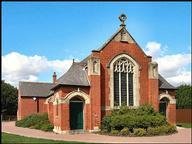Quiz Answer Key and Fun Facts
1. "Glory to God in the highest, and peace to his people on earth."
2. "My spirit rejoices in God my Savior, for he has looked with favor on his lowly servant. From this day all generations will call me blessed."
3. "Come, let us sing to the Lord."
4. "Lord, you now have set your servant free to go in peace as you have promised; for these eyes of mine have seen the Savior, whom you have prepared for all the world to see."
5. "Surely it is God who saves me; I will trust in him and not be afraid."
6. "The chariots of Pharaoh and his army has he hurled into the sea."
7. "You, my child, shall be called the prophet of the Most High, for you will go before the Lord to prepare his way."
8. "Glorify the Lord, all you works of the Lord, praise him and highly exalt him for ever."
9. "Splendor and honor and kingly power are yours by right, [...] O Lamb that was slain."
10. "And now, O Lord, I bend the knee of my heart [...] I have sinned, O Lord, I have sinned, and I know my wickedness only too well."
Source: Author
skylarb
This quiz was reviewed by FunTrivia editor
looney_tunes before going online.
Any errors found in FunTrivia content are routinely corrected through our feedback system.
